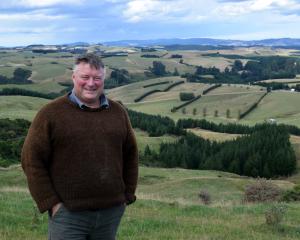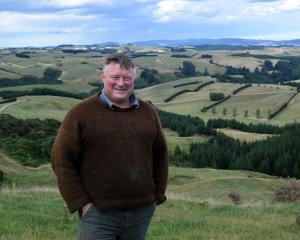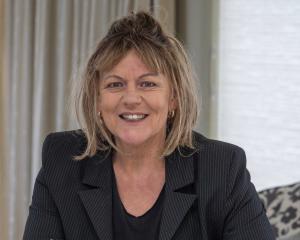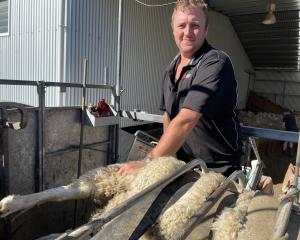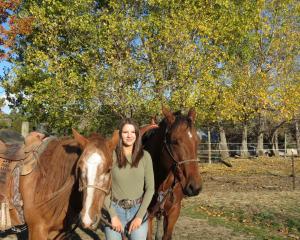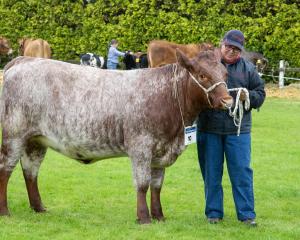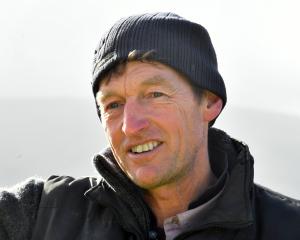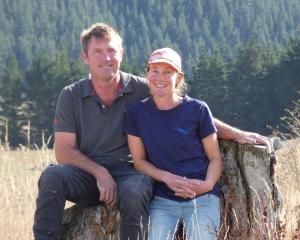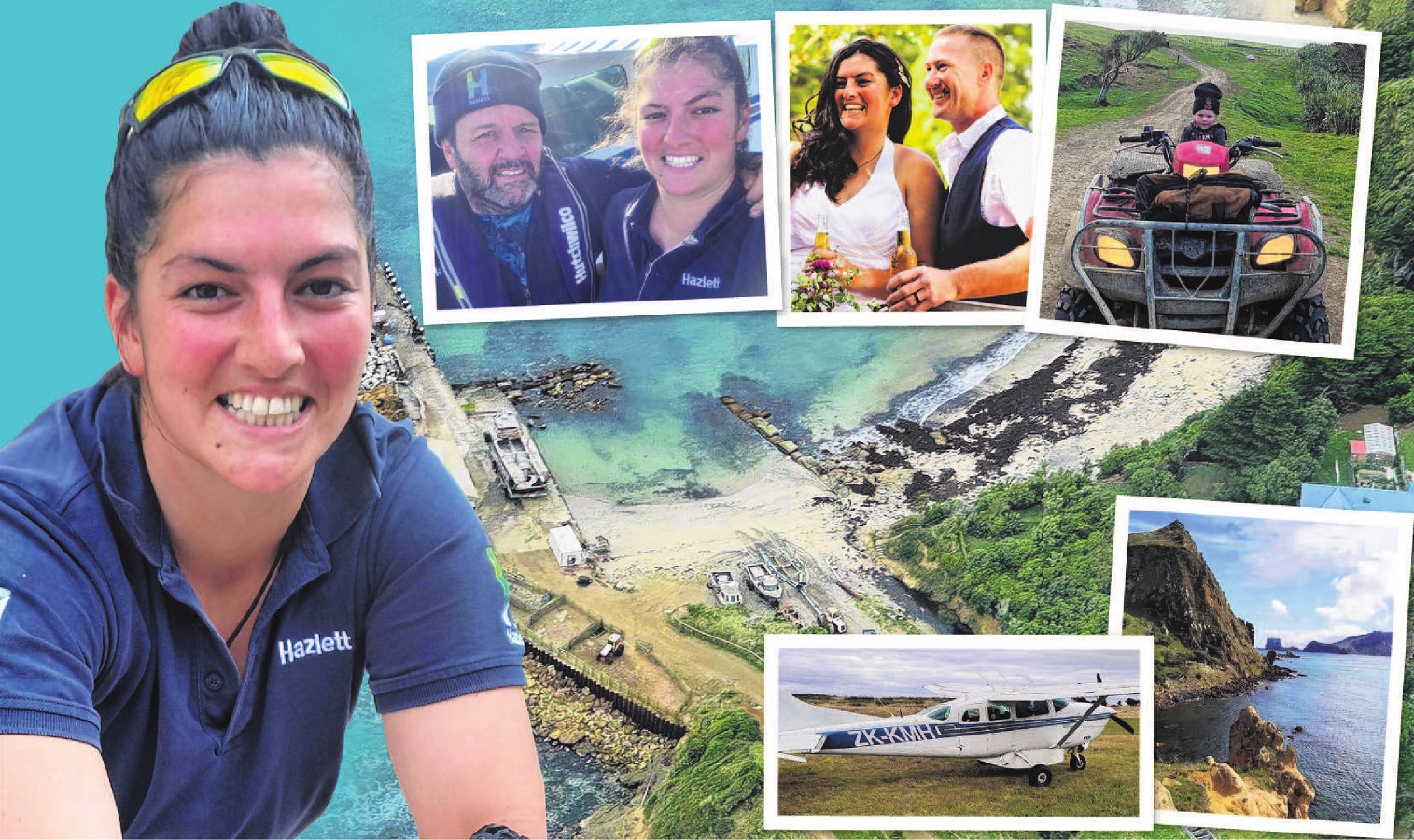
On the remote Chatham Islands, people tend not to have sons and daughters; they have children which is why one is just as likely to find boys baking bread as they are girls killing a sheep.
Last year, stock agent Tommi Gregory-Hunt unwittingly caused a storm in a social media teacup after social media user complained about the way she was listed on her company’s website.
On rural services firm Hazlett’s website, all the stock agents were men, bar one, and while they were all listed as "rural blokes", she as the sole woman was listed as a "stock agent".
Ms Gregory-Hunt responded personally to set the record straight, saying before she started the job in July last year, there were no female stock agents in the company so "rural bloke" was a point of difference.
Since then, there had been discussions over what to be called but she was not worried — "as anyone who’s worked sheep with their dad has been called a lot worse".
For those in the rural sector, particularly in the central South Island that know her inimitable father, Martie Gregory-Hunt, who could accurately be described as one of life’s characters, that is likely to cause a wry smile.
So Ms Gregory-Hunt, a ninth-generation Pitt Islander, answers to pretty much anything, including "rural bloke" on her business card. Except not often to her birthname of Raewyn; the diehard tomboy changed her own name at 3 and it stuck.
Now living in Timaru with her husband Tim and their young daughter Mikayla, the plan is for the family to return home one day so their children enjoy the same extraordinary upbringing she and her siblings had.
The Chatham Islands, about 800km east of the South Island, consist of two main islands: Chatham Island and Pitt Island. While Chatham has several stores, a police officer and a hospital, Pitt was "almost its own little country, separated by a body of water", she said.
The first inhabited place in the world to see the sun rise each day, it was home to a school, church, lodge and about 40 people, including descendants of Frederick and Mary Hunt who settled there in 1843.
Ask Ms Gregory-Hunt what it was like growing up on Pitt and she describes it as "incredible". One of six children, she lived on the island until flying out to attend boarding school at St Kevin’s College in Oamaru. It was her first time in the South Island.
School on Pitt was "kind of secondary to be fair", she said, laughing, recalling much-preferred hunting and fishing expeditions. Once her younger brother got old enough that he did not require a nappy change, they "just went cruising", fishing for whitebait with hooks in a creek, without much success.
The Gregory-Hunt siblings made their own fun, building ponga, flax and batten huts.
"At one point we tried to train a farm dog to be a sled dog because we thought it would be awesome. It didn’t work very well."
When their father found a great deal on Trade Me for golf balls, he set up a tee in the middle of the deck in front of the house and the children would don bike helmets and pick them up.
"Because everything can be fun," she said.
A local television station featured the likes of the much-loved Goodnight Kiwi while birthday greetings to fellow residents could be made during advertisements — "it was pointless showing you what was on sale at Countdown".
Firstly videos and then DVDs, the Gregory-Hunt family enjoyed movies like The Gods Must Be Crazy and Crocodile Dundee and the boxed set of The Waltons — "all people that lived in isolated areas".
"Obviously we knew there was town but we were like, ‘why would you want to go there?" she said.
The siblings knew boarding school was inevitable. While her two older sisters attended Sacred Heart College in Napier, Ms Gregory-Hunt was given the choice of the all-girls school, or co-educational St Kevin’s College.
The transition was "massive" but she loved St Kevin’s and, on the first day she walked into the boarding hostel, she instantly met her best friend. She enjoyed the opportunity to play so many more sports, although she steered right away from cricket — "we had a lot of non-stop cricket at school".
Much as she enjoyed running, found team sports "pretty good" and excelled at hockey and rugby. With only a small roll on Pitt Island and a wide range of ages, it made team sports tricky.
She represented South Canterbury and North Otago in rugby and hockey respectively.
After leaving school, she headed to Massey University in 2012 with the intention initially of becoming a vet but instead completed a science degree in agriculture and animal science. While there she played for the Cyclones, the Manawatu women’s rugby team.
Ms Gregory-Hunt then ended up back in Oamaru where she worked for Phil Cleland Shearing and that was how she met her now husband Tim. She also played for the Otago women’s rugby team, Otago Spirit.
Returning to Pitt Island, she asked Tim if he wanted to shear her father’s sheep, along with some for another farmer on the island. He suggested she belly crutch them and he would shear them. By the end of it, he announced he should probably teach her to shear a few. So that became a new string to her bow.
They couple later returned for a holiday and to shear Martie’s sheep again. When they got there, her father told her he had booked them in to shear 25,000 sheep. Halfway through the job, an extra 10,000 or so sheep were tacked on. TNT Shearing, the only local shearing gang on the Chathams, was born.
When Covid-19 arrived in New Zealand, the couple were on Pitt Island, along with a shearer from Kaikoura. They had shorn 42 sheep between them and had headed to Ms Gregory-Hunt’s grandmother’s for smoko when they got a call to say the border was being closed and the shearer, if he wanted to leave, had to go immediately.
Ms Gregory-Hunt spent lockdown with her partner, her father, her father’s partner and his partner’s daughter, her sister and her three children all in a three-bedroom house.
"We had a ball, we had great fun," she said.
They would spend the morning in the woolshed shearing her father’s sheep and then "go and do other things" after lunch. The four children were home-schooled.
They had a rule that they could only eat what they could hunt and gather, although the exception was potatoes — "you can’t have a meal without spuds". It took two years before Covid reached the Chathams.
When Ms Gregory-Hunt became pregnant with Mikayla she stopped shearing at three months and went woolhandling instead, finding another shearer to fill her spot. She flew to Christchurch four weeks from her due date to await the baby’s arrival.
On the day Mikayla arrived, a few days early, Ms Gregory-Hunt woke to her alarm, got up to make a coffee, went into labour and, two hours later was "holding a baby". Quipping that she came from a "long line of breeders", she rued how she never actually got the coffee.
When Mikayla was 4 days old, Tim got accidentally shot in the foot with a slug gun pellet and she flew home with two backpacks, a baby "and a very large child".
Around the time her maternity leave finished, she was offered a job managing a sheep and beef farm over there, coincidentally the 800ha property that her parents were managing when they had her.
It was a complete restock of the property, starting with 200 sheep, and she did a lot of fencing. She had a tub decked out with jackets over fencing gear where she would "park up" Mikayla and drag her down the fence line.
Ms Gregory-Hunt and her father had always talked about her stepping into his stock agent boots and training up. That process had had been sped up when Martie was diagnosed with multiple sclerosis.
Originally Ms Gregory-Hunt was going to train up on the Chathams under her father’s tutelage but after he was crushed by a bull, a scan detected MS and so there was a reshuffle.
Martie, who spent time based in North Otago, had spent 26 or so years as an agent and, if something did not happen, then that service was going to disappear. While Hazlett was not the only company to service the island, he was the only resident agent.
It was about helping keep farming viable on the Chathams, keeping up with the markets and offering good advice to people "from someone that lives there and knows about it as well", she said.
And it was not just solely about livestock; it could be a multi-faceted role — from therapist to marriage counsellor, she laughed — as she also recalled all the shopping — from nappies to carpet — her father did to send back to the Chathams while he lived in North Otago.
"What he did was way more than just a stock agent."
Farming systems were different on the Chathams, which was very low input and with a low stocking rate. Stock did not have to fit any category; it was about getting them on the ship if there was space and there was "a bit more finessing out here", she said.
Stock agents remained a very male-dominated arena and she had already been approached by other young women keen to be a stock agent, but felt being female was a detriment.
She reckoned confidence was one of the barriers to putting their names forward and she encouraged other young women to apply to firms which offered trainee roles.
Ms Gregory-Hunt’s plan was to eventually take over running the family farm on Pitt Island but, in the meantime, she was relishing getting stuck into her stock agent work.
She missed home, particularly now she had her own child, and it was more important now to return so Mikayla could have the same upbringing as she enjoyed.
"It’s just something in you that’s like ... it’s the place. It’s not the people because there are people everywhere," she said.
Asked whether she was aware of the significance of her home growing up, she said she always knew it was different and it was special.
There were books in the school library about where the Hunt part of her surname came from — Frederick Hunt, the first European settler on the island and whose daughter married a Gregory, hence the double-barrelled name.
"It’s a history you grow up knowing like the back of your hand.
"You can stand there [the highest point on their farm and looking over at the other highest point of the island] and be like nine generations ago, he stood here. It’s pretty crazy," she said.
And Ms Gregory-Hunt was also in awe of those generations of women before her, particularly her grandmother Dianne Gregory-Hunt, originally from Cattle Creek, and who was awarded a QSM for services to the community in the New Years Honours List in 2013.
A mother of 11, her first home had no running water, no electricity and an outside toilet. There were slowly increasingly levels of luxury to 24-hour power and flush toilets.
After her husband had a stroke in his early 50s, she took over his role as lay preacher in the church on Pitt Island. Growing up, Ms Gregory-Hunt had fond memories of turning up to her home to a mug of hot Milo sitting on her hearth. "She’s just a brilliant woman," she said.



